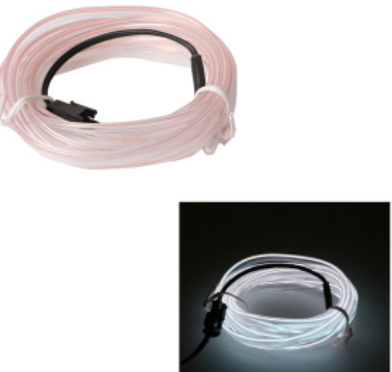The tallyaccounts for 44 percent of the Republican legislators in the nine states wherethe presidential race was most narrowly decided. In each of those states, theelection was conducted without any evidence of widespread fraud, leavingelection officials from both parties in agreement on Joe Biden’s victory.
The Times’analysis exposes how deeply rooted lies and misinformation about formerPresident Donald Trump’s defeat have become in state legislatures, which playan integral role in US democracy. In some, the false view that the election wasstolen — either by fraud or as a result of pandemic-related changes to the process— is now widely accepted as fact among Republican lawmakers, turningstatehouses into hotbeds of conspiratorial thinking and specious legaltheories.
Thesefictions about rigged elections and widespread fraud have provided thefoundation for new laws that make it harder to vote and easier to insertpartisanship in the vote count. In three states, Arizona, Pennsylvania andWisconsin, state lawmakers successfully pushed for investigations that soweddoubt about the results and tested the boundaries of their oversight.
And yet theTimes’ analysis also shows that these efforts have encountered significantresistance from key Republican figures, as well as Democrats. In most states,the lawmakers who challenged the 2020 results do not yet have the numbers, orthe support of governors, secretaries of state or legislative leaders, toachieve their most audacious aims.
They haveadvanced, but not enacted, legislation that would make it easier forpoliticians to overturn elections. And it is only a minority of Republicanlawmakers who promote the legally dubious view that they — and not the votes ofthe people — can select the electors who formally cast a ballot for thepresident in the Electoral College.
Election anddemocracy experts say they see the rise of anti-democratic impulses instatehouses as a clear, new threat to the health of American democracy. Statelegislatures hold a unique position in the country’s democratic apparatus,wielding a constitutionally mandated power to set the “times, places and mannerof holding elections.” Cheered on by Trump as he eyes another run for the WhiteHouse in 2024, many state legislators have shown they see that power as licenseto exert greater control over the outcome of elections.
In aninterview with the Times, Trump acknowledged that in deciding whom to endorsein state legislative races, he is looking for candidates who want statelegislatures to have a say in naming presidential electors — a position thatcould let politicians short-circuit the democratic process and override thepopular vote.
“In 2020,the plan of Trump and his allies hinged ultimately on getting statelegislatures to overturn the will of the voters,” said Ben Berwick, a counselat Protect Democracy, a nonpartisan group. “If past is prologue, that samestrategy is likely to be central to efforts to subvert an election in thefuture.”
The Times’review provides only a glimpse of the ways that state legislatures fueled themovement to deny and challenge the 2020 results. The analysis focused onconcrete actions and did not include lawmakers’ posts on social media orstatements they made in campaign speeches.
Somelegislators who were among the most vociferous in their support of subvertingthe election have tried to use their 2020 efforts as a springboard to higheroffice, all while still pledging to further remove democratic guardrails.
DougMastriano, a Republican state senator from Pennsylvania who won his party’snomination for governor Tuesday, has pushed the Department of Justice toinvestigate debunked election conspiracies, has held a legislative hearing withmembers of Trump’s legal team and has promised to enact new voting restrictionsif elected. Mark Finchem, a Republican state representative in Arizona who haspursued the dubious theory of election decertification, is a candidate forsecretary of state in that state.
Trump’sdefeat was undisputed among election officials and certified by Democratic andRepublican secretaries of state, with slates of electors signed by Democraticand Republican governors. None of the recounts or audits altered the outcome.Trump’s Department of Justice found no evidence of widespread fraud. Trump lostmore than 50 of his postelection challenges in court.
His campaignto overturn the defeat played out differently across the states. Trump wonFlorida and had no reason to pressure lawmakers to agitate over the result,although they used distrust in the election as justification for new votingrestrictions. But in Texas, another state that Trump won, the deeplyconservative Legislature was eager to show voters that it was taking action andlawmakers introduced a bill that included provisions to overturn results infuture elections.
In Nevada,Trump lost by more than 33,000 votes. But with Democrats in control of theHouse, Senate and governor’s office, Republicans in the state Legislatureshowed little interest in joining efforts by the Nevada Republican Party tosend an alternate slate of electors after the 2020 election. Nevada is the onlyone of the nine battleground states where Democrats control the Legislature.
A Call forAction
Four daysbefore the House of Representatives was set to formally tally the ElectoralCollege votes for Biden, an act long considered purely ceremonial, Trump’sadvisers gathered more than 300 state legislators on a Zoom call, according toa report by the House committee investigating the Jan. 6, 2021, attack on theCapitol.
Trump andhis allies pushed for lawmakers to change the certified results sent toCongress. Many experts said such a move would have been unconstitutional.
PeterNavarro, a former top White House adviser, told those in the group that it wastheir responsibility to act, describing the situation as dire. Trump told themthat legislatures were the linchpin in his strategy, more important than thecourts or Congress, according to the report.
The argumentwas based on the independent state legislature theory, which asserts that statelegislatures hold absolute and exclusive power over presidential elections,including the appointment of electors to the Electoral College. The idea ispurely theoretical; it has never been affirmed by a court decision and mostscholars say it has no merit.
Days afterTrump spoke to lawmakers, members of the Pennsylvania state legislature wrote aletter to Sen. Mitch McConnell, R-Ky, then-Senate majority leader, and Rep.Kevin McCarthy, R-Calif, Republican leader in the House, asking them to delaycertification. On Jan 5, 2021, more than 90 legislators from Georgia, Arizona,Michigan, Wisconsin and Pennsylvania sent a letter to Vice President Mike Penceasking him to delay the certification of the election.
Trump hascontinued to try to convince state legislatures that they can “decertify” the2020 election, a process that has no basis in either the US Constitution orstate constitutions.
Statelawmakers have responded to Trump’s calls for action largely by overhaulingvoting procedures. Thirty-four laws that include restrictions on voting werepassed in 2021, according to a review by the Times, and 18 laws were passedthis year, according to a report from the States United Democracy Center, anonprofit group. Some limited drop boxes or mail-in voting. Others put morepower over elections in the hands of state legislatures, rather than localelection officials or secretaries of state.
Some billsalso sought to make it easier for lawmakers to intervene in elections. An earlydraft of a sweeping Texas election law included a subsection titled“Overturning Elections,” although that provision was dropped before the bill’sfinal passage. In Arkansas, Republicans granted the State Board of ElectionCommissioners new powers to take “corrective action” or open investigations atevery stage of the voting process. (Arkansas state legislators were notincluded in the Times analysis because Trump won the state handily.)
In manystates, lawmakers’ first step has been to call for outside partisaninvestigations, often referred to as “audits,” although they do not followtypical auditing procedures or standards.
‘Audits’ asa Gateway
The hunt forfraud in Arizona accelerated in the days after electors had been certified, andshowed how a vocal and determined faction of Republican legislators could forcethrough a deeply destabilizing outside election review.
The initialpursuit of fraud would devolve into a yearlong fracas between Republicans andlocal election officials in Maricopa County, home to Phoenix. The RepublicanSenate hired a shadowy outside company with ties to election conspiracytheories to conduct an “audit,” dismissing objections from Republican countyofficials.
What the“audit” eventually found — that Biden had indeed won Arizona — provedirrelevant to those who had called for it. Trump and his allies focused insteadon perceived irregularities in the voting process, such as 23,344 mail-inballots sent from voters’ prior addresses and election-management databasesthat were purged. Both practices are legal and common.
Localelection officials found 76 misleading, inaccurate or false claims in the auditreport.
Yet, many ofthose claims appeared verbatim in a resolution introduced in February byFinchem, the Arizona state representative, and sponsored by 13 fellowRepublicans in the Legislature. The resolution calls for “decertifying” theelection. In announcing the resolution, Finchem made reference to theindependent state legislature theory as a justification.
“While somemay say there is no valid constitutional, nor statutory grounds for such anaction, they clearly are disregarding long-standing jurisprudence,” Finchemwrote in an announcement accompanying the resolution.
The pathfrom the review to the resolution shows how outside investigations can createpressure for further action.
Republicanleaders in the Arizona Legislature haven’t taken up Finchem’s measure. RussellBowers, speaker of the Arizona House and a Republican, said the stateLegislature could only appoint its own electors if “there was provendemonstrable fraud sufficient to cover whatever balance or a gap in voters thatexisted.” He added: “We did not even come close to that,” and he dismissed theSenate review as a “seat-of-the-pants circus.”
Republicanleaders in other battleground states are facing similar upheavals surroundingso-called audit efforts. In Wisconsin, Robin Vos, the Republican speaker of theHouse, at first resisted launching an outside “forensic audit.” But afterpublic pressure from Trump, Vos relented and created a review helmed by MichaelGableman, a former state Supreme Court justice.
Gablemantook the investigation in a different direction. When he released an initialreport of his findings in March, Gableman argued for “decertification.” StateRep. Timothy Ramthun has put the call to decertify at the center of hiscampaign for governor.
RemakingLegislatures
Legislativeleaders have repeatedly acted as firewalls blocking anti-democratic effortsfrom moving forward. In the days after the election, the Republican speaker ofthe House and the Senate president from Michigan rebuffed Trump’s personalpleas to support an alternate slate of electors, even after being summoned tothe White House.
Trump hasnot forgotten. Since then, he has made transforming the Michigan Legislature apet project. He has endorsed 10 candidates for state legislative seats —including some who are challenging Republican incumbents — and is seeking toplay kingmaker in the already brewing fight over who will be speaker of theHouse.
In theinterview, Trump, who won 7 million fewer votes than Biden, spread blame forhis loss across several targets, including Pence, McConnell and statelawmakers.
“The legislatures,the local Republicans, lost the election,” he said.
Trump-endorsedcandidates for state legislative seats have taken note.
JonathanLindsey, a Trump-endorsed candidate for the Michigan Senate, said that at aminimum, he thinks the state Legislature should vote on electors if an electionis disputed. Regarding the 2020 election, he added: “If I were in that seat, Iwould have voted to send Trump electors.”
© 2022 TheNew York Times Company




